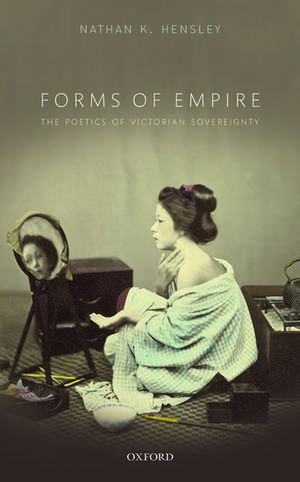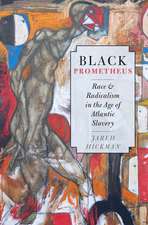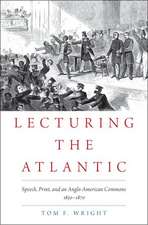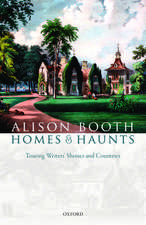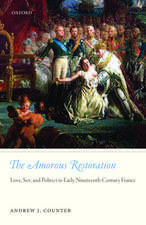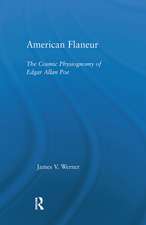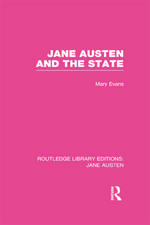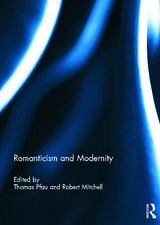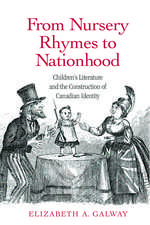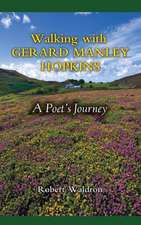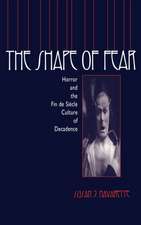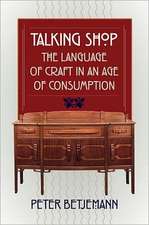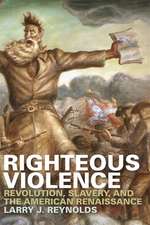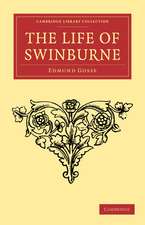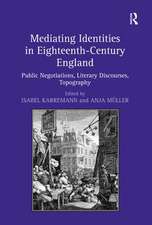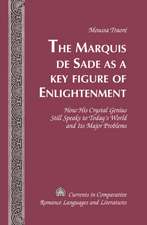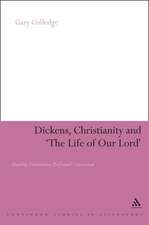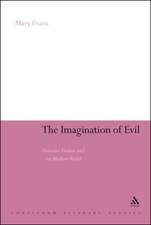Forms of Empire: The Poetics of Victorian Sovereignty
Autor Nathan K. Hensleyen Limba Engleză Hardback – 17 noi 2016
Preț: 641.84 lei
Preț vechi: 879.56 lei
-27% Nou
Puncte Express: 963
Preț estimativ în valută:
122.83€ • 133.38$ • 103.18£
122.83€ • 133.38$ • 103.18£
Carte tipărită la comandă
Livrare economică 12-18 aprilie
Preluare comenzi: 021 569.72.76
Specificații
ISBN-13: 9780198792451
ISBN-10: 019879245X
Pagini: 326
Dimensiuni: 143 x 223 x 22 mm
Greutate: 0.5 kg
Editura: OUP OXFORD
Colecția OUP Oxford
Locul publicării:Oxford, United Kingdom
ISBN-10: 019879245X
Pagini: 326
Dimensiuni: 143 x 223 x 22 mm
Greutate: 0.5 kg
Editura: OUP OXFORD
Colecția OUP Oxford
Locul publicării:Oxford, United Kingdom
Recenzii
forms of Empire's attention to the violence that lies at the heart of liberalism is an important intervention and has the capacity to significantly reshape the field and, in particular, studies of liberalism.
Hensley presents a powerful intellect and a lucid voice on the scholarly scene.
The forms of Nathan Hensley's Forms of Empire: The Poetics of Victorian Sovereignty are not just sociopolitical but also literary constructs, and it is Hensley's use of form to forge connections between literature and liberal law that is the most striking feature of this book ... Original in its method, Forms of Empire also provides striking and original readings of the texts it treats.
A gripping, at times formidable, study that consistently and inventively gauges the depth to which in Victorian Britain the liberal state (of mind, of nationhood) was infused by its reprobated and ostensibly superseded opposite: the infliction of brutal violence on subjected bodies around the imperial globe ... This book is going to get noticed.
While Forms of Empire's most obvious contribution to the field is its utterly convincing picture of the indelible relationship between empire and Victorian literature, and between violence and liberalism, the books dedication to keeping the fraught histories and persistent blindspots of our methodologies in view is an important part of the way it intervenes in the liberal triumphalism that is, too often, our unacknowledged Victorian inheritance.
Well written, bracingly argued, replete with insights, the book is a significant achievement.
Hensley manages to keep multiple strains of thought going simultaneously, such that reading Forms of Empire is like listening to music on a dozen different channels. Hardly any other critic can achieve such an ambitiously impressive stereophonic analysis.
... Now Lauren Goodlad and Nathan Hensley offer two new ways of understanding Victorian society's commitment to expansion, conquest, and domination, and Victorian literature's commitment to staying at home ... specialists in the Victorian era -- like Goodlad and Hensley -- have shown us a great deal about the way its literature reflects upon imperialism without ever going to the colonies.
A masterful and beautifully written book of commanding scope, Hensleys Forms of Empire posits a new method of reading the Victorian periods, and more broadly liberalisms, constitutive antimony: the intimate, scandalous intertwinement of violence and law (9)
Stunningly smart and erudite, Forms of Empire convincingly argues that violence necessarily constitutes the other face of liberal modernity. Not only does Nathan Hensley probe the very logic of empire, but, in so doing, he also proffers an incisive meditation on contemporary habits and assumptions of literary criticism. That the book pulls these different threads together with rigor as well as elegance is but one example of its brilliance. Forms of Empire is a spectacular achievement.
Forms of Empire is gratifying in its determination to put not only empire but the violence upon which it depends at the center of Victorian literature and the critical project of Victorian studies
The book is filled with rich, illuminating writing, informed equally by rigorous archival research and sensitive close readings ... Hensleys innovative contribution is a deft amalgam of surface-oriented close reading, sensitive to the present while grounded in history
Hensley presents a powerful intellect and a lucid voice on the scholarly scene.
The forms of Nathan Hensley's Forms of Empire: The Poetics of Victorian Sovereignty are not just sociopolitical but also literary constructs, and it is Hensley's use of form to forge connections between literature and liberal law that is the most striking feature of this book ... Original in its method, Forms of Empire also provides striking and original readings of the texts it treats.
A gripping, at times formidable, study that consistently and inventively gauges the depth to which in Victorian Britain the liberal state (of mind, of nationhood) was infused by its reprobated and ostensibly superseded opposite: the infliction of brutal violence on subjected bodies around the imperial globe ... This book is going to get noticed.
While Forms of Empire's most obvious contribution to the field is its utterly convincing picture of the indelible relationship between empire and Victorian literature, and between violence and liberalism, the books dedication to keeping the fraught histories and persistent blindspots of our methodologies in view is an important part of the way it intervenes in the liberal triumphalism that is, too often, our unacknowledged Victorian inheritance.
Well written, bracingly argued, replete with insights, the book is a significant achievement.
Hensley manages to keep multiple strains of thought going simultaneously, such that reading Forms of Empire is like listening to music on a dozen different channels. Hardly any other critic can achieve such an ambitiously impressive stereophonic analysis.
... Now Lauren Goodlad and Nathan Hensley offer two new ways of understanding Victorian society's commitment to expansion, conquest, and domination, and Victorian literature's commitment to staying at home ... specialists in the Victorian era -- like Goodlad and Hensley -- have shown us a great deal about the way its literature reflects upon imperialism without ever going to the colonies.
A masterful and beautifully written book of commanding scope, Hensleys Forms of Empire posits a new method of reading the Victorian periods, and more broadly liberalisms, constitutive antimony: the intimate, scandalous intertwinement of violence and law (9)
Stunningly smart and erudite, Forms of Empire convincingly argues that violence necessarily constitutes the other face of liberal modernity. Not only does Nathan Hensley probe the very logic of empire, but, in so doing, he also proffers an incisive meditation on contemporary habits and assumptions of literary criticism. That the book pulls these different threads together with rigor as well as elegance is but one example of its brilliance. Forms of Empire is a spectacular achievement.
Forms of Empire is gratifying in its determination to put not only empire but the violence upon which it depends at the center of Victorian literature and the critical project of Victorian studies
The book is filled with rich, illuminating writing, informed equally by rigorous archival research and sensitive close readings ... Hensleys innovative contribution is a deft amalgam of surface-oriented close reading, sensitive to the present while grounded in history
Notă biografică
Nathan K. Hensley is Assistant Professor of English at Georgetown University, where he also co-directs the Modernities Working Group. His writing has appeared in Victorian Studies, Novel: A Forum on Fiction, Victorian Periodicals Review, The Stanford Arcade, and other venues.
